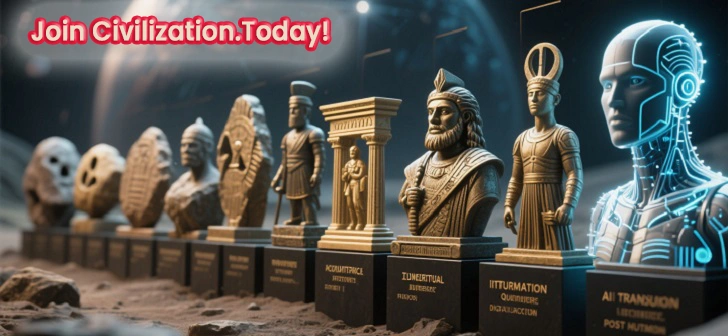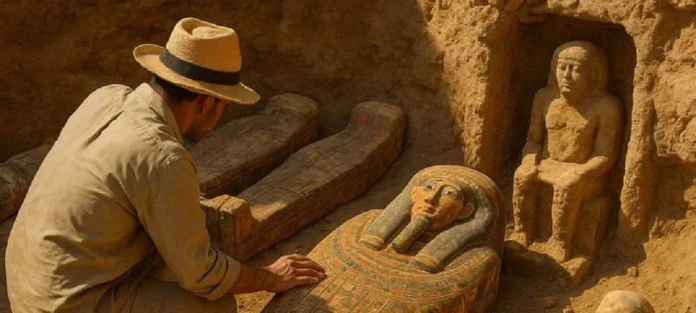Interview: Dr. Leila Hassan on the Role of Women in Building Civilizations
From the hidden figures of ancient cities to today’s influential leaders, women have been the silent architects of history. In a captivating discussion, renowned historian and anthropologist Dr. Leila Hassan reveals how women’s contributions shaped the very foundation of human civilization — and why we must rewrite the narrative to give them the recognition they deserve.
Breaking the Myth: Women as Passive Participants in History
When we open history books, the spotlight often shines on kings, warriors, and male inventors. But Dr. Hassan argues that this is only half the story.
“Women were never just spectators in the making of civilizations. They were strategists, builders, educators, and leaders. The difference is, their work was often hidden or undervalued.”
From agricultural innovation to the development of social systems, women in civilization played crucial roles in sustaining communities. Ancient Mesopotamian women managed trade and property, Egyptian queens ruled as pharaohs, and women in the Indus Valley designed early urban planning systems.
The Economic Backbone of Ancient Societies
Civilizations did not thrive on politics alone — they needed stable economies. Dr. Hassan points out that in many ancient societies, women controlled vital sectors such as food production, textile manufacturing, and market trade.
- In ancient Egypt, women could own land, manage businesses, and act as legal witnesses.
- In medieval West Africa, female traders dominated marketplaces, creating wealth networks that supported kingdoms like Mali and Ghana.
- In ancient China, women in silk production fueled trade along the Silk Road, indirectly influencing global commerce.
“If you remove women from the economic picture of early civilizations, the entire structure collapses,” Dr. Hassan emphasizes.
Cultural and Intellectual Influence
Civilization is more than technology and governance — it is also about art, literature, and education. Women were often the custodians of culture, passing down traditions, teaching children, and preserving stories.
Dr. Hassan highlights examples like:
- Hypatia of Alexandria, a philosopher and mathematician whose teachings influenced Western science.
- Ban Zhao of Han China, who authored treatises on education and ethics that shaped Confucian thought.
- Sappho, the Greek poet whose lyrical work influenced generations of writers.
Even when barred from formal positions, women used art, literature, and oral tradition to influence society’s moral and cultural framework.
Women Leaders Who Changed the Course of History
Throughout history, certain women defied the norms of their time to lead entire nations:
- Hatshepsut of Egypt expanded trade routes and built monumental architecture that defined the New Kingdom.
- Empress Wu Zetian of China’s Tang Dynasty implemented reforms that improved education and governance.
- Queen Amanirenas of Kush led her armies against Roman invasions, preserving her kingdom’s independence.
“These leaders prove that political power was not the sole domain of men. In fact, when women took the helm, they often brought long-term stability and growth,” says Dr. Hassan.
The Overlooked Role in Science and Innovation
The contributions of women in civilization extend to science, technology, and medicine. In ancient Mesopotamia, women worked as physicians and midwives, preserving medical knowledge. Indigenous women in the Americas developed complex agricultural systems like the “Three Sisters” farming method (corn, beans, and squash), ensuring food security for entire populations.
Even in modern history, women like Rosalind Franklin (DNA research) and Katherine Johnson (NASA mathematician) advanced scientific progress, though recognition often came decades later.
Why Women’s Contributions Were Erased
When asked why history tends to overlook women’s impact, Dr. Hassan points to three main factors:
- Patriarchal record-keeping – Chroniclers often focused on male achievements, ignoring women’s roles.
- Social norms – In many cultures, women’s work was labeled as “domestic” and therefore excluded from official history.
- Colonial narratives – European colonization often rewrote local histories, diminishing the status of women in indigenous societies.
“The erasure was not accidental — it was systemic. Reclaiming women’s place in civilization requires us to challenge the way history is told,” Dr. Hassan asserts.
Lessons for Modern Society
Dr. Hassan believes that studying women in civilization is not just about correcting the past — it’s about shaping the future. In today’s world, where gender inequality persists, these historical insights remind us that inclusive leadership is not a modern invention; it’s a return to humanity’s roots.
- Policy-making: Understanding women’s governance in history can inspire inclusive political systems today.
- Economics: Recognizing women’s historical role in trade and industry can guide fairer economic policies.
- Education: Highlighting women’s cultural contributions can balance curricula and inspire the next generation.
Closing Thoughts from Dr. Hassan
“Civilization is like a tapestry — remove half the threads, and the picture disappears. Women are not just part of the story; they are the story.”
As this interview reveals, acknowledging the role of women in civilization is not merely an academic exercise. It is a moral obligation to honor the real architects of our shared history.



